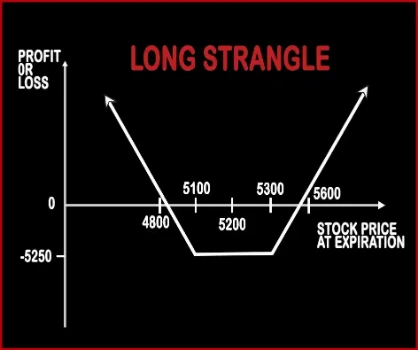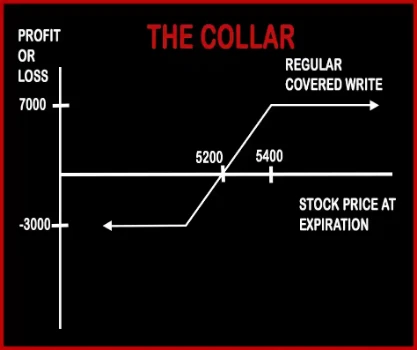Compare Strategies
| LONG STRANGLE | THE COLLAR | |
|---|---|---|

|

|
|
| About Strategy |
Long Strangle Option StrategyA Strangle is similar to Straddle. In Strangle, a trader will purchase one OTM Call Option and one OTM Put Option, of the same expiry date and the same underlying asset. This strategy will reduce the entry cost for trader and it is also cheaper than straddle. A trader will make profits, if the market moves sharply in either direction and gives extra-ordinary returns in the |
The Collar Option StrategyCollar Strategy is an extension to Covered Call Strategy. A trader, who is bullish in nature but has a very low risk appetite and wants to mitigate his risk will implement the Collar Strategy. Collar involves buying of stock in either Cash/Futures Market, buying an ATM Put Option & selling an OTM Call Option. The expiry dates of the op .. |
LONG STRANGLE Vs THE COLLAR - Details
| LONG STRANGLE | THE COLLAR | |
|---|---|---|
| Market View | Neutral | Bullish |
| Type (CE/PE) | CE (Call Option) + PE (Put Option) | CE (Call Option) + PE (Put Option) + Underlying |
| Number Of Positions | 2 | 3 |
| Strategy Level | Beginners | Advance |
| Reward Profile | Unlimited | Limited |
| Risk Profile | Limited | Limited |
| Breakeven Point | Lower Breakeven Point = Strike Price of Put - Net Premium, Upper Breakeven Point = Strike Price of Call + Net Premium | Price of Features - Call Premium + Put Premium |
LONG STRANGLE Vs THE COLLAR - When & How to use ?
| LONG STRANGLE | THE COLLAR | |
|---|---|---|
| Market View | Neutral | Bullish |
| When to use? | This strategy is used in special scenarios where you foresee a lot of volatility in the market due to election results, budget, policy change, annual result announcements etc. | It should be used only in case where trader is certain about the bearish market view. |
| Action | Buy OTM Call Option, Buy OTM Put Option | Buy Underlying, Buy 1 ATM Put Option, Sell 1 OTM Call Option |
| Breakeven Point | Lower Breakeven Point = Strike Price of Put - Net Premium, Upper Breakeven Point = Strike Price of Call + Net Premium | Price of Features - Call Premium + Put Premium |
LONG STRANGLE Vs THE COLLAR - Risk & Reward
| LONG STRANGLE | THE COLLAR | |
|---|---|---|
| Maximum Profit Scenario | Profit = Price of Underlying - Strike Price of Long Call - Net Premium Paid | Strike Price of Short Call - Purchase Price of Underlying + Net Premium Received |
| Maximum Loss Scenario | Max Loss = Net Premium Paid | Purchase Price of Underlying - Strike Price of Long Put - Net Premium Received |
| Risk | Limited | Limited |
| Reward | Unlimited | Limited |
LONG STRANGLE Vs THE COLLAR - Strategy Pros & Cons
| LONG STRANGLE | THE COLLAR | |
|---|---|---|
| Similar Strategies | Long Straddle, Short Strangle | Call Spread, Bull Put Spread |
| Disadvantage | • Require significant price movement to book profit. • Traders can lose more money if the underlying asset stayed stagnant. | • Limited profit. • A trader can book more profit without this strategy if the prices goes high. |
| Advantages | • Able to book profit, no matter if the underlying asset goes in either direction. • Limited loss to the debit paid. • If the underlying asset continues to move in one direction then you can book Unlimited profit . | • This strategy protects the losses on underlying asset. • Risk gets limited if the price of the stocks goes down. • Trader can get ownership benefits life dividend and voting rights. |